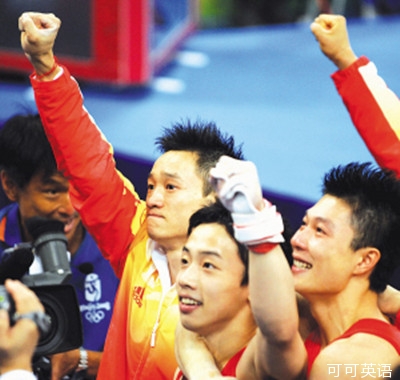(单词翻译:单击)
You see it when you watch almost any game: there's a touchdown, a home run, a goal.
当你看的比赛中又触地得分,本垒打,破网而入的时候。
An athlete has triumphed!
你就会发现一位运动员已经胜利的完成目标!
And then, almost instantly they raise their arms over their shoulders, shout aggressively and push out their chest.
然后,几乎同时他们都会振臂高呼并且用力拍胸。

Like an animal in the wild or, according to a new study, like an athlete not simply winning, but also publicly asserting dominance.
嗯,就像是个野生动物或者,根据一项最新的研究,就好像这个运动员不止是赢得了一场比赛,而且在公开宣布某种主权所属。
Well, I'm the best corner in the game.
嗯,我是比赛中表现最好的。
Researchers examined footage of judo athletes from more than a dozen countries in Olympic competitions.
研究人员们调查了参加奥运会竞技体育比赛中的20多个国家中的柔道运动员们的比赛视频镜头。
Across cultures and genders, the athletes demonstrated similar victorious body language.
不同文化背景和性别的差异背景下,运动员们都呈现出相似的庆祝胜利时的身体语言。
And lest you think the behavior is observed and learned, the researchers also looked at blind Para-Olympians—they too displayed many of those same actions, leading the investigators to conclude the behavior is innate.
为了避免行为被观察以及大脑学习带来的行为变化,研究人员们也调查了盲人在残奥会的相关比赛—他们也表现出许多相似的行为活动,综合考虑从而使参与调查的人总结出行为是物种天生的。
The study is in the journal Motivation and Emotion.
这项研究已在《动机和情感》杂志上发表。
The researchers say the victorious body language, known as dominance threat display, may stem from an evolutionary need to display order.
研究人员们说得胜时候的身体语言,被认为是支配权威胁展示,也许是起源于需要显示等级的一种进化现象。
As in who gets to do the ordering.
比如显示谁在等级中占主导支配权了。
Don't you ever talk about me.
能不能不要总是谈到我呢。


